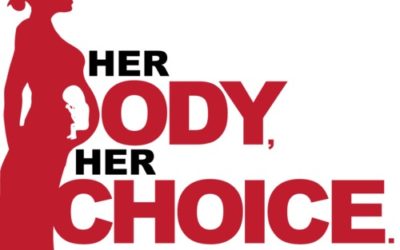Black Women’s Agenda Supreme Court Alert
Schuette v. Coalition to Defend Affirmative Action
On Tuesday, April 22, 2014, in a 6-2 decision, the United States Supreme Court upheld a voter-approved change to the Michigan Constitution prohibiting the use of affirmative action in its state public college admissions. This decision upholds a 2006 Michigan ballot initiative where voters approved a prohibition on race-based admissions at state schools. This decision does not change the ability of schools in states that do not have such bans to consider race as one of the factors in their admissions process. Dealing a blow to affirmative action, the Court upheld the ballot initiative as one method of challenging race-conscious admissions policies. In a plurality opinion, Justice Kennedy wrote: “This case is not about how the debate about racial preferences should be resolved, it is about who may resolve it”. He emphasized that this decision did not disturb the 2003 Grutter v. University of Michigan decision which permitted consideration of race in college admissions policies.
In a strong 58 page dissent that was longer than the four opinions supporting the result and which she read aloud in the courtroom, Justice Sotomayor wrote that although the Michigan amendment was adopted democratically, the outcome nonetheless trampled on the rights of minorities. Justice Sotomayor stated: “But without checks, democratically approved legislation can oppress minority groups”. Further, she stated that judges “ought not sit back and wish away, rather than confront, the racial inequality that exists in our society”. Joined by Justice Ginsburg, Justice Sotomayor wrote, “This refusal to accept the stark reality that race matters is regrettable. The way to stop discrimination on the basis of race is to speak openly and candidly on the subject of race, and to apply the Constitution with eyes open to the unfortunate effects of centuries of racial discrimination.”
Several states, including California and Washington, have similar voter-approved initiatives banning affirmative action in education. As a result, African American and Latino enrollment at the University of Michigan has decreased since the prohibition was passed in 2006. In California, African American enrollment has declined, and Latino enrollment has slightly increased.
It is clear that the debate over the permissibility of race-conscious preferences will continue. It is also clear that race still matters in our country, and that affirmative action and diversity and inclusion initiatives are needed to address historic and current racial and ethnic inequality.
BWA Legislative Committee (April 25, 2014)
OTHER NEWS
AN OPEN LETTER TO THE UNITED STATES CONGRESS
Founded in 1977, The Black Women’s Agenda, Inc. is a national organization with a mission of educating and protecting the rights of African American women and their families, and represents more than 3 million women.
This Open Letter is being sent in support of women throughout the United States and the World. We understand the importance of recognizing the “person-hood” of women and their complete dominion over their bodies, including matters of pregnancy and reproductive health.
The Spirit of Change Town Hall
On Saturday, May 18, 2019, The Black Women’s Agenda, Inc. (BWA) hosted faith leaders, activists, elected officials, journalists, and a multicultural audience from across the political spectrum today for Spirit of Change, a frank and expansive town hall conversation, moderated by ABC News Anchor and Correspondent T.J. Holmes, on some of the nation’s most pressing issues, at Washington National Cathedral in the nation’s capital.
July is National Minority Mental Health Awareness Month
In 2008, the US House of Representatives designated July as Bebe Moore Campbell National Minority Mental Health Awareness Month, which is now known as National Minority Mental Health Awareness Month.
The Agency for Healthcare Research and Quality (AHRQ) reports that “racial and ethnic minority groups in the U.S. are less likely to have access to mental health services, less likely to use community mental health services, more likely to use emergency departments, and more likely to receive lower quality care. Poor mental health care access and quality contribute to poor mental health outcomes, including suicide, among racial and ethnic minority populations.”
© 2025 The Black Women’s Agenda, Inc. All Rights Reserved. Privacy Policy








